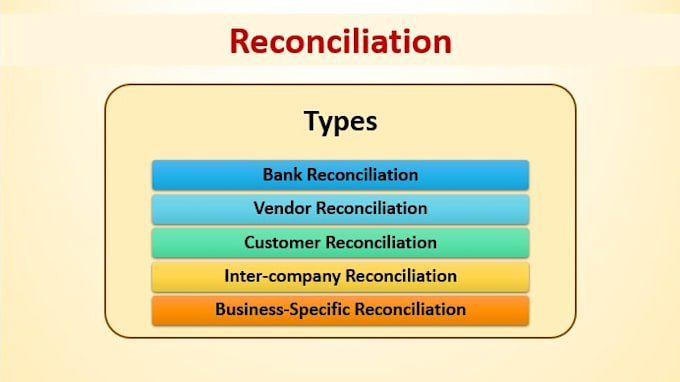CDD in Real Estate: Understanding Contract for Deed Arrangements
What’s CDD in real estate?
In the real estate industry, CDD stand for contract for deed, likewise know as a land contract, installment sale contract, or bond for deed. This alternative financing method allow buyers to purchase property direct from sellers without traditional mortgage financing. The arrangement work as a seller financing agreement where the buyer make payments direct to the seller over time.

Source: grahamsalkingroup.com
Unlike conventional property sales, with a contract for deed, the seller retains legal title to the property until the buyer complete all payments. The buyer receive equitable title or interest in the property, allow them to occupy and use it while make payments toward full ownership.
How contract for deed works
A contract for deed create a specific legal relationship between buyer and seller. Here’s how the process typically unfold:
The basic structure
The buyer and seller agree on a purchase price, down payment amount, interest rate, payment schedule, and contract term. These terms are commonly negotiable and oftentimes reflect the unique circumstances of both parties.
After sign the agreement, the buyer gain possession of the property and assume responsibilities such as maintenance, property taxes, and insurance. Notwithstanding, the seller maintains legal ownership until the contract isfulfilledl.
The buyer make regular payments (typically monthly )direct to the seller accord to the agree schedule. Once all payments are complete, the seller transfer the legal title to the buyer through a deed.
Key components of a CDD
- Purchase price and payment terms
- Interest rate (oftentimes higher than conventional mortgages )
- Down payment amount
- Contract duration (typically 3 7 years, but can vary )
- Balloon payment provisions (if applicable )
- Default and remedy clauses
- Responsibility for taxes, insurance, and maintenance
- Recording requirements
Advantages of contract for deed arrangements
Benefits for buyers
For many buyers, CDs offer a pathway to homeownership that might differently be inaccessible. The advantages include:
Easier qualification: Buyers with credit challenges, inconsistent income, or insufficient down payment savings may qualify for a CDD when traditional mortgage financing isn’t available.
Flexible terms: Without bank involvement, buyers and sellers can negotiate customize terms regard down payments, interest rates, and payment schedules.
Faster closing: CDD transactions typically close fasting than conventional mortgages, oftentimes within days sooner than weeks.
Lower closing costs: These transactions broadly involve fewer fees than traditional mortgage closings, as they don’t require extensive lender processing.
Immediate occupancy: Buyers can move in instantly after sign the contract and make to agree upon down payment.
Benefits for sellers
Sellers too find several advantages in offer property through a contract for deed:
Larger buyer pool: By offer seller financing, property owners can attract buyers who can not qualify for conventional loans.
Steady income stream: The arrangement provide sellers with regular monthly payments, oftentimes at interest rates higher than other investments.

Source: kcal.gu Guide
Simplify foreclosure process: In many jurisdictions, the foreclosure process for CDs is faster and less complex than for mortgages.
Tax benefits: Sellers may defer capital gains taxes by spread the income from the sale over multiple tax years.
Higher selling price: The flexibility of terms oftentimes allow sellers to command a premium price compare to conventional sales.
Risks and disadvantages
Risks for buyers
Despite the benefits, contract for deed arrangements carry significant risks for buyers:
Forfeiture risk: In many states, if a buyer default on payments, they may lose all equity they’ve built in the property, include down payment and improvements make.
Title issues: Since the seller retain legal title, problems can arise if the seller have existed liens, mortgages, or judgments against the property, or if the seller die or declare bankruptcy before transfer title.
Property condition: Without the protection of lender require inspections and appraisals, buyers may discover significant property defects after purchase.
Balloon payments: Many CDs include balloon payments require the buyer to pay off the remain balance in a lump sum after a certain period, which can be difficult to finance.
Higher interest rates: Contract for deed arrangements typically carry interest rates several percentage points higher than conventional mortgages.
Risks for sellers
Sellers besides face potential downsides:
Buyer default: If the buyer stop makes payments, the seller must go through legal procedures to reclaim the property.
Property damage: Buyers who face foreclosure may neglect or damage the property before vacate.
Legal complexities: Seller responsibilities regard disclosures, property condition, and contract terms can create legal liabilities.
Tie up assets: The seller’s capital remains tie up in the property until the contract is fulfilled.
Legal considerations and regulations
Contract for deed arrangements are governed by state laws, which vary importantly across jurisdictions. Some states havenactedct consumer protection legislation specifically addrCDscdds.
State variations
Regulations may address:
- Recording requirements
- Disclosure obligations
- Cancellation and forfeiture procedures
- Redemption rights
- Require contract provisions
For example, Minnesota require CDD contracts to be record within four months of signing, while Texas mandate specific disclosures and provide certain buyer protections against forfeiture.
Important documentation
A right execute contract for deed should include:
- Complete legal description of the property
- Purchase price and payment terms
- Interest rate and amortization schedule
- Default provisions and remedies
- Responsibility allocation for taxes, insurance, and maintenance
- Title transfer conditions
Both parties should consider have the document review by an attorney familiar with real estate law in their state.
Contract for deed vs. Traditional mortgages
Understand how CDs compare to conventional financing help buyers and sellers make informed decisions:
Key differences
| Feature | Contract for deed | Traditional mortgage |
|---|---|---|
| Title ownership | Seller retain legal title until final payment | Buyer receive title at closing, lender hold lien |
| Qualification process | Flexible, determine by seller | Strict lender requirements (credit, income, debt ratios ) |
| Closing costs | Typically lower | Higher (appraisal, origination fees, etc. ) |
| Interest rates | Normally higher | Broadly lower, market base |
| Default consequences | Oftentimes forfeiture of all payments and improvements | Foreclosure process with equity protection |
| Consumer protections | Fewer protections in most states | Extensive federal and state protections |
Alternatives to contract for deed
Buyers and sellers should consider several alternatives to CDs that may offer better protection:
For buyers
- FHA loans: Government back mortgages with lower down payment requirements and more flexible credit criteria.
- USDA rural development loans: Zero down payment loans for properties in eligible rural areas.
- Va loans: No down payment loans for qualified veterans and service members.
- Rent to own agreements: Arrangements that allow renters to apply a portion of rent toward a future purchase.
- Lease option contracts: Leases that give tenants the option to purchase the property during or at the end of the lease term.
For sellers
- Owner financing with mortgage: Seller provide financing but transfers title directly, secure their interest with a mortgage or deed of trust.
- Wraparound mortgage: Seller keep existing mortgage in place while create a new, larger mortgage for the buyer t” ” wraps arou” ” the original.
- Installment sale: Similar to a CDD but structure otherwise for tax advantages.
Best practices for contract for deed transactions
For buyers
To protect their interests, buyers should:
- Obtain a professional title search to verify the seller’s ownership and identify any liens
- Commission a professional home inspection
- Secure an independent appraisal to confirm fair market value
- Record the contract with the appropriate county office
- Purchase owner’s title insurance if available
- Consult with a real estate attorney before sign
- Maintain detailed payment records
- Consider include a provision to convert to traditional financing when credit improve
For sellers
Sellers can minimize risks by:
- Soundly vet potential buyers’ financial capability
- Require a substantial down payment (typically 10 20 % )
- Include clear default and remedy provisions
- Maintain appropriate insurance coverage
- Record the contract to protect their interest
- Set up an escrow account for property taxes and insurance
- Consult with tax professionals regard income tax implications
When a contract for deed make sense
Despite the risks, certain situations make CDs an appropriate financing solution:
- When a buyer is work to improve credit but want to secure a property immediately
- In markets where traditional financing is difficult to obtain
- For properties that wouldn’t qualify for conventional loans due to condition issues
- When family members are transfer property between generations
- In situations require a quick closing
- For sellers seek steady income kinda than a lump sum payment
Conclusion
Contract for deed arrangements offer an alternative path to property ownership and investment that bypass traditional lending institutions. While they provide flexibility and opportunity for both buyers and sellers, they besides present significant risks that must be cautiously considered.
With proper due diligence, legal guidance, and clear documentation, CDs can serve as viable financing instruments in the real estate market. Nonetheless, all parties should good understand the terms, obligations, and potential cconsequences ofenter such agreements.
As with any significant financial transaction, the key to success lie in careful research, professional advice, and clear communication between all parties involve. When approach with appropriate caution, contract for deed arrangements can bridge financing gaps and create opportunities in real estate markets where traditional options may be limited.



